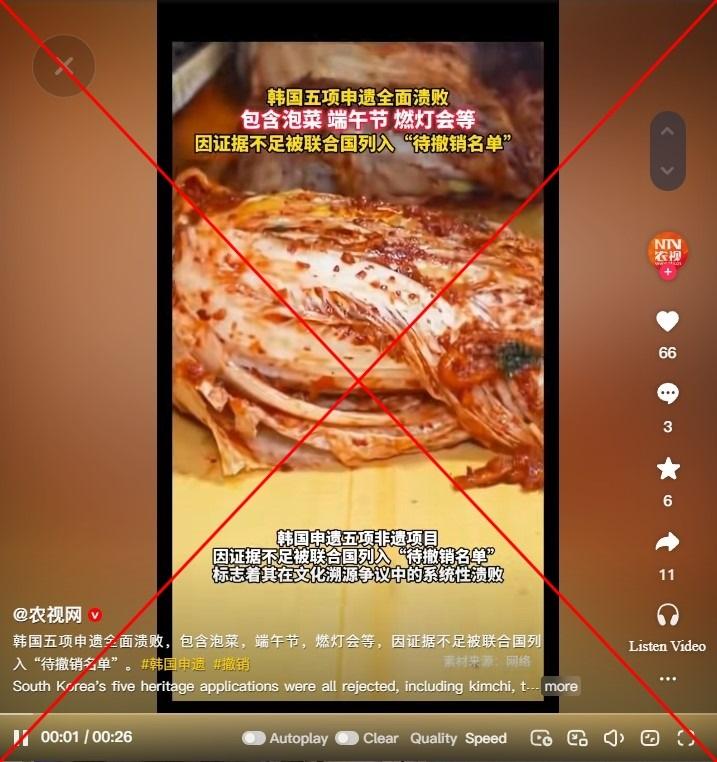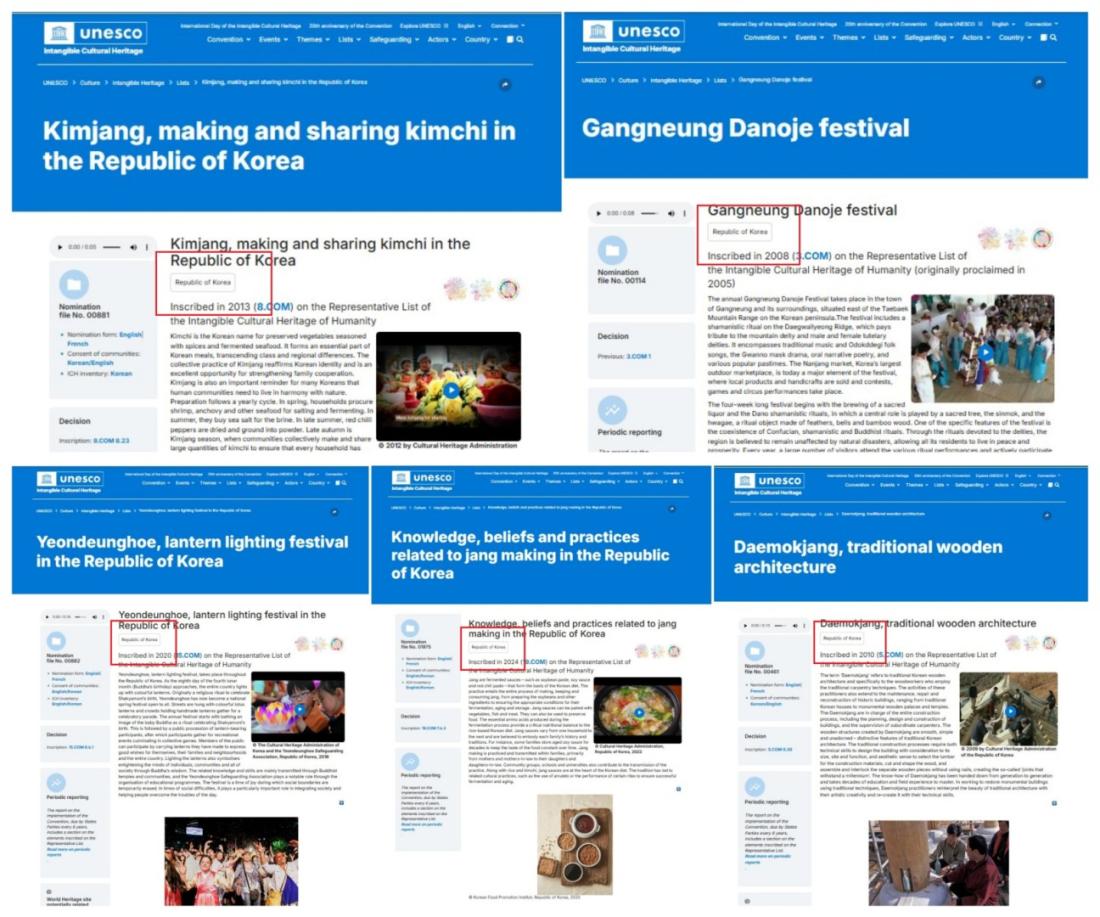
Chinese posts baselessly claim UNESCO revoking recognition of S. Korean cultural practices
- Published on August 26, 2025 at 03:52
- 2 min read
- By Charlotte KWAN, AFP Hong Kong
A Douyin post shared on July 20, 2025 claims that five South Korean cultural practices and expressions of cultural heritage were on the verge of being removed from UNESCO's intangible cultural heritage lists because of "insufficient evidence" about their origins.
This "marks a systematic collapse in the debate over cultural heritage," it says, appearing to refer to frequent clashes between South Korea and China over issues of cultural heritage (archived link).
The post claims the pending removals came after the "China Cultural Heritage Appraisal Centre" submitted evidence to the UN regarding the making and sharing of kimchi and jang , as well as about the annual Gangneung Danoje festival, the lantern lighting festival Yeondeunghoe, and traditional wooden architecture known as Daemokjang.

Similar false claims were shared elsewhere on Douyin, Weibo, TikTok and Facebook after Busan in South Korea was selected to host the annual international UNESCO World Heritage Conference in July 2026 (archived link).
"That's great, South Korea is so shameless," read a comment on one of the posts.
Another said: "The UN has finally done something useful."
But a UNESCO spokesperson told AFP on August 14 that the agency has not considered removing any of the five South Korean cultural practices mentioned from its intangible cultural heritage list.
There is also no evidence a Chinese agency called the "China Cultural Heritage Appraisal Centre" exists.
A keyword search on Google found the five cultural practices purportedly up for removal are still on UNESCO's Intangible Cultural Heritage Lists (archived link).

The UNESCO spokesperson told AFP that any removal from its lists would require a "multi-stage, consultative approach" involving the relevant country and communities before a final decision is made.
They added that the only removal from its lists in over 20 years was the Aalst Carnival from Belgium (archived link).
"It should be noted that this was a rather extraordinary, rare case," the spokesperson said, as the request came from Belgium itself as the carnival was criticised for its use of anti-Semitic imagery (archived link).
AFP has also previously debunked other misinformation stemming from China and South Korea's clashes of cultural heritage.
Copyright © AFP 2017-2026. Any commercial use of this content requires a subscription. Click here to find out more.
Is there content that you would like AFP to fact-check? Get in touch.
Contact us
